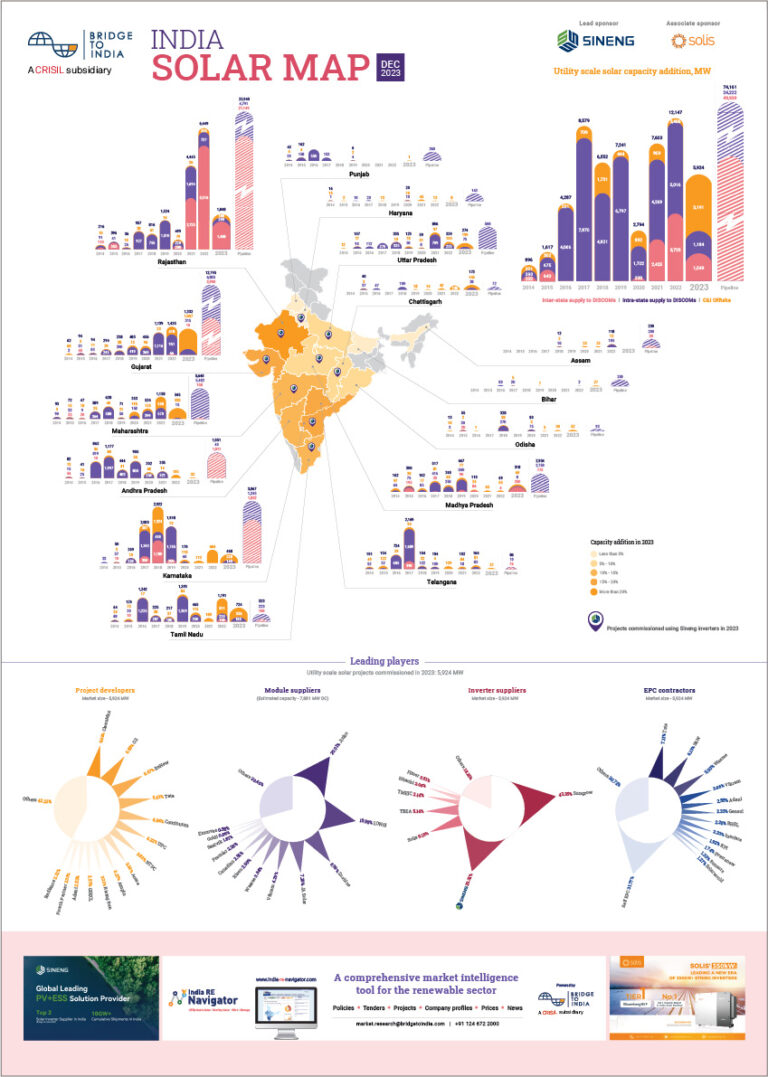Leading corporates are increasingly adopting RE 100 pledges to decarbonise their businesses in response to demands from investors and consumers. There are now eight Indian companies alongside many international companies operating in India that have signed up to RE100 pledge.
- Rooftop solar and open access are the only two mainstream choices for renewable power procurement;
- Corporate renewable can be a critical pillar for sector growth and decarbonisation of the economy;
- Consumers can make incremental progress by dovetailing their demand pattern with renewable power output profile and exploring solutions like energy efficiency, storage and solar thermal power;
But the consumers simply have no pathway to 100% RE in the current market and policy framework. Available choices remain limited mainly to rooftop solar and open access, which account for 93% of total corporate renewable business at present. And both these routes face severe restrictions. While rooftop solar is constrained by availability of suitable onsite space, open access remains partially or wholly inaccessible due to denial of approvals or project capacity/ banking restrictions in most states. For an average consumer with 24×7 operation, these two routes can therefore meet typically only about 30% of total power requirement. In Karnataka and Gujarat, where open access wind is viable and project approvals are forthcoming, renewable power share may go up to about 50-60%. All other available options – green power exchange, renewable energy certificates (RECs) and green tariffs – are either too expensive or riddled with cost, liquidity, policy and reliability constraints. These routes can therefore be used only as part of a supplementary sourcing strategy on an opportunistic basis.
Figure: Estimated capacity of different procurement routes, December 2021, MW

Source: BRIDGE TO INDIA research
Note: REC capacity has been estimated based on trading volume in FY 2020.
Most of the problems stem from the convoluted grid tariff structure and the need to preserve financial interests of DISCOMs. However, it is becoming increasingly untenable to deny access to renewable power for these archaic reasons. By delaying reform and denying access to renewable power, the policy makers are not only perpetuating sector distress but artificially suppressing growth of the renewable sector and delaying progress on decarbonisation. They are also potentially blocking Indian businesses from staying competitive in the global marketplace, where replacement of fossil fuel sources is seen as an essential business competence.
MNRE has shown some belated willingness to support the corporate renewable market by waiving inter-state transmission charges and liberalising open access route. But these measures are largely cosmetic in absence of more pressing sector reforms and DISCOM support for growth of this market.
In the meantime, the old dictum, ‘necessity is the mother of invention,’ could be helpful for consumers and project developers alike. Consumers can make incremental progress by managing their demand pattern, wherever possible, and exploring solutions like energy efficiency, storage and solar thermal power. There is also an opportunity for a more robust engagement effort with the central and state governments on policy advocacy. The project developers have an attractive opportunity to move beyond commoditised solutions and offer more complex, higher value solutions.












